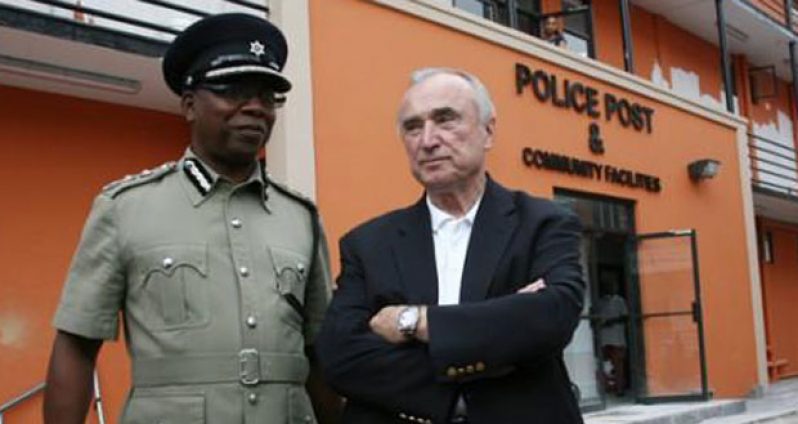–With mix of rogue cops; party politicking
CONFRONTED with criminal rampage and related threats to their national security, some governments of the Caribbean Community have occasionally resorted to recruiting the expert services of foreign cops — primarily from Britain, Canada or the USA — with impressive credentials in combating criminality.
Jamaica and Trinidad & Tobago in particular have varyingly resorted more to such a practice. They have also had to contend, at times, with tensions among ranks of their respective police service amid rumblings about “foreign experts”, and a mix of politicking by parliamentary parties.
Barbados, headquarters location for the Association of Caribbean Commissioners of Police (ACCP), has managed, so far, to cope without such foreign expertise, even in the face of a new wave of gun-related killings, robberies as well as climbing rape cases.
Just this past week, a highly-rated American crime-buster, William Bratton, former New York police chief, arrived in Port-of-Spain for talks with the government of Prime Minister Kamla Persad-Bissessar on how he could help to arrest the current epidemic of criminality.
Well, it so happens that Mr. Bratton’s arrival came some 15 months after two high- profiled cops from Canada had quit the two top positions in the Trinidad and Tobago Police Service, amid political wrangling as well as internal rumblings among ranks.
Shared hopes
The media blurbs on William Bratton were quite impressive, and could well inspire hope among peace-loving citizens of Trinidad and Tobago, who are understandably quite anxious for an affective halt to the criminal rampage.
This hope would be shared by Trinis’ CARICOM cousins, facing, as they do in their respective jurisdictions, frightening levels of crime that include not only gun-related murders and robberies, but the old menace of drug-trafficking, and now the comparatively new abomination to involve this region: Human trafficking.
Bratton’s crime-fighting credentials include his service as a former top-cop of the Los Angeles Police Department (LAPD). He lost no time during his initial two-day visit in reminding the local media of his “successes” in the implementation of a data-driven management model in combating crime in New York, called “ComStat” (short for comparative statistics).
Hopefully, when he settles down to carrying out his challenging task to beat back criminality in that twin-island state of CARICOM (including gruesome scenes of killings, armed robberies, sickening rape cases, and other heart-wrenching acts of criminality), Mr. Bratton would come forward with recommendations/strategies to effectively enable successes where failures have largely been the norm.
It is of relevance to point out here that in exercising the initiative to benefit from the expert advice of Bratton, Prime Minister Persad-Bissessar would also be conscious of her obligations to CARICOM, in her current role as the regional leader with responsibility for ‘crime and security’.
CARICOM’s anti-crime agenda
The institutional mechanism, established in the wake of ‘Cricket World Cup 2007’ to deal with crime and security issues is known by the acronym ‘IMPACS’ (Implementation Agency for Crime and Security).
Granted that much caution is generally exercised in dealing publicly with matters pertaining to national/regional security, it is nevertheless a reality that precious little information of worth is shared by those responsible with the citizens of this region.
They are left to consume media reports on recurring mind-blowing acts of criminality, including corrupt cops whose crimes undermine the rule of law, and consequently complicate national security efforts. There were a few glaring examples of this worrying situation just this past week in Guyana when, thanks to commendable initiatives, some of the rogue cops were arrested.
It is fairly well known that from Jamaica, in the northern sub-region, to Guyana and Suriname in the south, and expanding across Trinidad and Tobago and the Eastern Caribbean, there are far too many examples of financial and, yes, sexual corruption involving police ranks.
Equally dangerous is the penchant of politicians and their parties to engage in self-serving politicking over appointments, non-promotions, and/or dismissals within the national police service.
Worse is when their narrow, partisan politicking contribute to sustaining corruption by cops, some with links to the criminal underworld that include gun-running and narco-traffickers.
Perhaps some consideration should also be given to a Code of Conduct for politicians and parties to restrict their habit of political interference in police appointments, promotions and discipline, and not merely during periods of national elections.
(Analysis by Rickey Singh)












